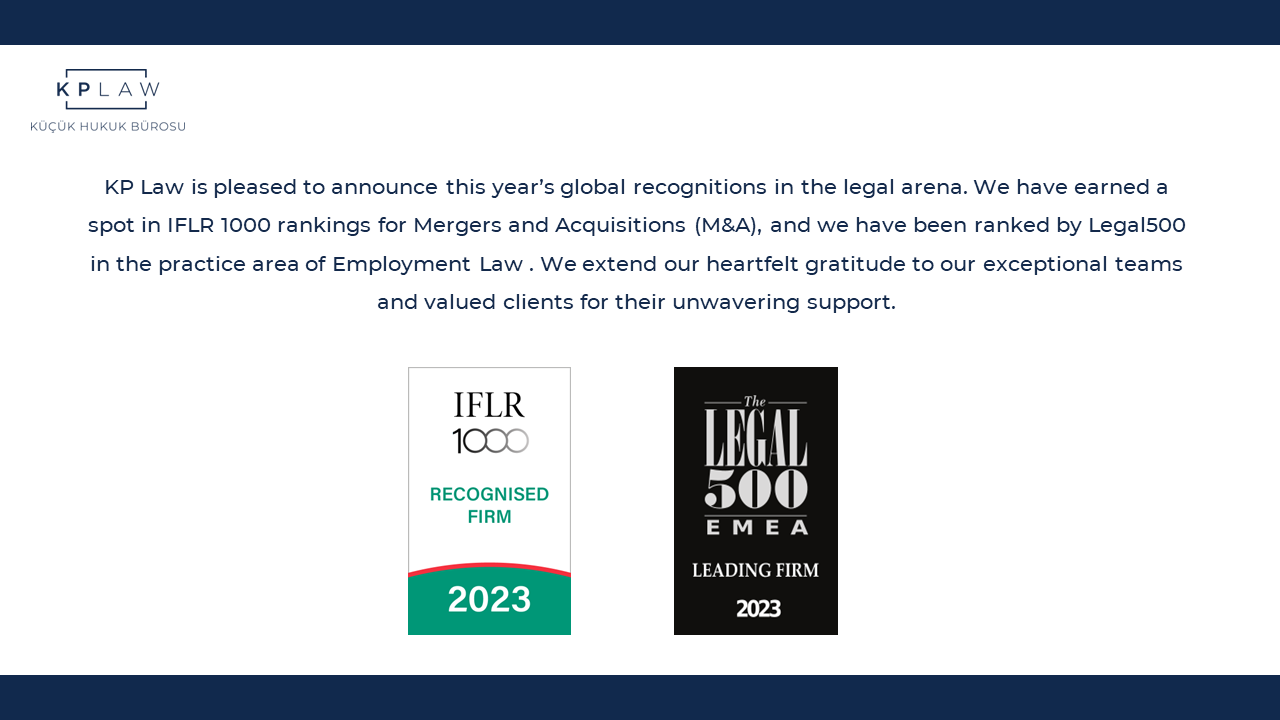Start-up, which was first introduced in Silicon Valley in the US, has started to be more and more involved in our lives with the globalizing world. The main purpose of start-up companies, which are rapidly increasing in number today, is to produce solutions to a specific situation or problem and provide their solutions to people in a short time. They aim to develop rapidly and become one of the most popular companies with these solutions that appeal to a wide audience. While they are mostly focused on software and technology, there are also start-up companies operating in different fields such as banking and finance.
To establish a successful start-up, it is sufficient to have the right business model, a strong network and minimum capital in the first phase of the company. However, a company that starts to grow over time may need to receive investment in order to ensure its continuity in a competitive environment and to make a profit. At this stage, legally determining the position of investors and start-up founders within the company is of great importance to ensure the balance between tangible and intellectual capital. Finding investors to provide financial support or functional contribution accelerates the growth process of start-ups.
What are the Types of Investors?
1)Angel Investor
The term angel investor is used in the business world for people who use their own funds to invest in start-ups and usually get shares in the company in return. Angel investors can contribute with their experience as well as financial support. Some of them even provide mentoring support to start-ups.
In the current legal regulations in Turkey, the term Individual Investment Participant (IIP) is used to cover the term angel investor. The "Regulation on Individual Participation Capital" on IIPs was prepared by the Undersecretariat of Treasury and entered into force with the Official Gazette dated 15.02.2013.
The relevant regulation regulates the conditions for being a IIP, the network they use and the state support that investors will receive. According to this regulation, only real persons can become an IIP. In other words, institutions and legal entities are not granted IIP licenses.The regulation also mentions the Individual Participation Investor Network (IPI Network), which is a legal entity formed by IPIs to enable companies to meet with investors. The Undersecretariat of Treasury communicates with IIPs through this network. IIPs can be a member of more than one network if they wish.
With this method, start-ups that cannot grow due to lack of funds have the opportunity to develop, while angel investors can both benefit from the state support provided under the regulation and have the opportunity to deduct 75% of their shares from income subject to income tax in accordance with the provisional Article 82 added to the Income Tax Law.
2) Venture Capital
Investors become partners in start-up companies that they believe will be valued in the long term through capital increases or share transfers. This method is known as venture capital or risk capital. The risk is the probability that a new service or product will survive in the market. This is why it is also known as the courage capital.
Venture capital investment creates a partnership between investors with money and companies seeking funding to develop their ideas. In the partnership, the invested start-ups are expected to be successful and bring significant profits to the investor in the long term.
3) Crowdfunding
Crowdfunding is a financing method in which many people provide the necessary budget for the realization of a specific goal by contributing small amounts through certain platforms. In our legislation, there are 4 types of crowdfunding methods: Equity Based Crowdfunding, Debt Based Crowdfunding, Donation Based Crowdfunding and Reward Based Crowdfunding.
Donation-based crowdfunding and Reward-based crowdfunding are models with no financial return. In donation-based funding, support is collected from the crowd in the form of grants without any compensation, while in reward-based funding, the company seeking financing obtains support from the customer as a pre-order. Equity-based crowdfunding and debt-based crowdfunding are essentially investments, and are therefore important for start-up companies.
Among the methods with a financial return, share-based crowdfunding was the first to be implemented in Turkey. In equity-based funding, in exchange for crowdfunding, the funder receives a share of the start-up company, which is a security. With the "Communiqué on Crowdfunding (III - 35/A.2)", which entered into force on October 27, 2021, the debt-based crowdfunding method was regulated and a new method was created especially for start-up companies. In this method, the money people pay for funding is repaid directly with interest.
According to the relevant regulation, crowdfunding activities can only be carried out online and by platforms authorized by the Capital Market Law. The conditions for permitting platforms are specified in Article 5 of the Communiqué. Crowdfunding based on donations and rewards is excluded from the scope of the Communiqué.
Convertible Debt Agreements
A start-up that is still at the idea stage or has just been founded needs to somehow raise the cash it needs to grow. However, reasons such as the lack of a credit rating create a big problem for companies in terms of providing financing support. For this reason, as the world of entrepreneurship has evolved, start-up companies have started to use new methods to get investment. The type of agreement referred to as convertible debt is one of these methods.
The purpose of the agreement is to provide financing to the newly established company with low interest rates and short terms of 12-24 months. In return for the loan, the investor has the opportunity to become a shareholder in the company according to the pre-agreed value when the conditions specified in the agreement are realized. If the conditions set out in the agreement are not fulfilled, the company must repay the financing to the investor with interest.
The role of convertible debt agreements in Turkish Law
There is no exact equivalent of convertible debt agreements in Turkish law. In accordance with the principle of freedom of agreement in the Law of Obligations, it is seen that they are applied as financing agreements that can be converted into shares.
On 11.05.2020, the Capital Movements Circular (Circular), which entered into force on 02.05.2018, was amended and the concept of convertible debt was used for the first time. According to paragraph 12 of Article 6 titled "Payment of share fees in capital increases" of the relevant circular, the following conditions shall be required for convertible debt agreements concluded in foreign currency between Turkish residents and venture capital funds established in foreign countries. Provided that these conditions are fulfilled, in relation to the foreign currency transferred to the account of the Turkish resident party to the agreement, the conditions regulated under Article 14 of the Circular on the general rules of foreign currency credit utilization are not required to be fulfilled:
- A provision stipulating that the debt shall be capitalized within a maximum period of 12 months from the date of transfer
- The existence of a provision stipulating that such amounts shall be added to the capital (and not continue as debt) except in the event of dissolution or liquidation of the company
- The existence of a provision stipulating that the entire amount transferred will be added to the capital.
The Circular does not cover investment transactions by Turkish companies.


